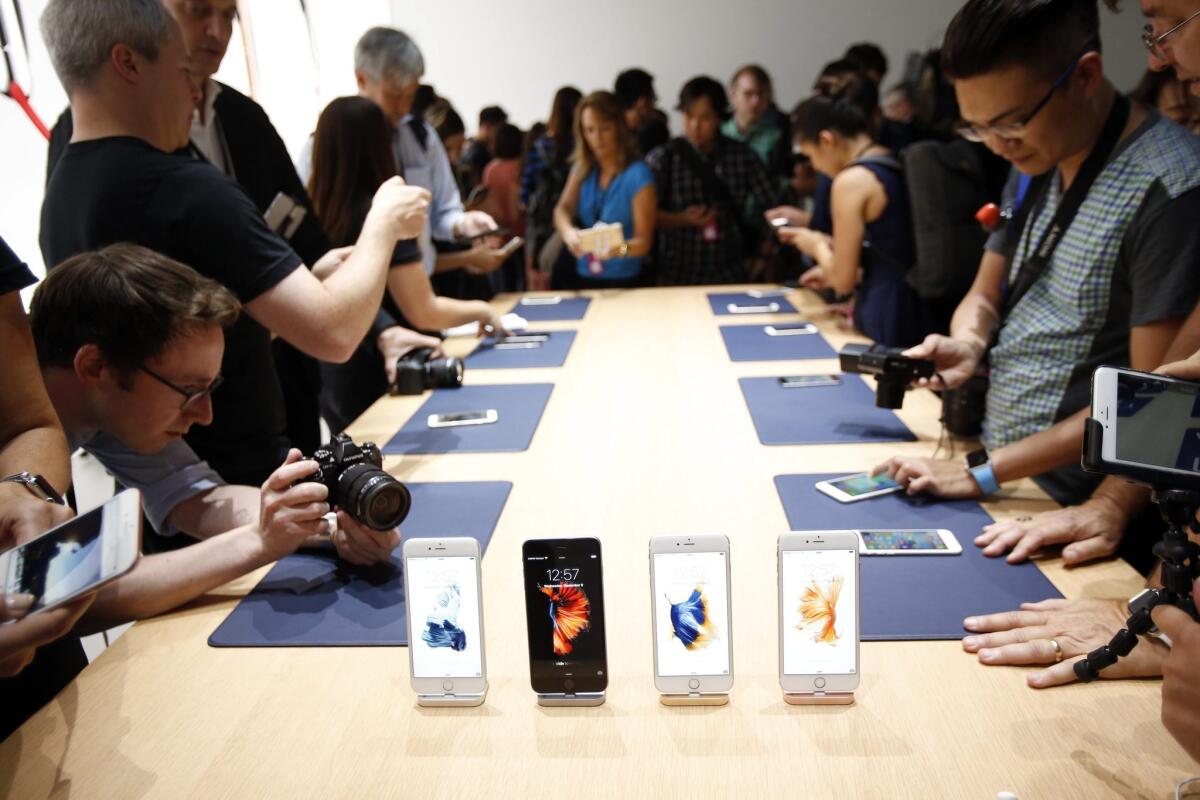Apple and Google seek to protect consumers, leaving some app makers frustrated

Apple’s new iPhone 6s and 6s Plus were on display after Apple’s announcement of new products on Wednesday.
As Apple and Google attempt to make online browsing both quicker and safer, they’re leaving app makers frustrated.
Apple wants app developers to adopt stronger security measures when transferring information online, a move that tech companies see as well-meaning but one that costs them time and money.
Google wants websites to stop forcing smartphone and tablet users to clear away an ad for an app before they can see a page’s contents. It could benefit Google’s ad business, but irks companies such as Yelp and LinkedIn that use the delaying tactic to promote their apps, which they say hold better sales and usage potential than websites.
The changes are just the latest to show the considerable sway Apple and Google hold over the mobile app industry. Either Apple’s iOS or Google’s Android operating systems are installed in nearly all of the world’s smartphones.
Apple’s App Transport Security feature makes it tougher for miscreants who have hijacked a Wi-Fi connection to view someone’s passwords, messages and clicks. It’s part of the updated iPhone and iPad operating system, which Apple said Wednesday will be available for download starting Sept. 16. Developers may ignore the feature, though they expect the opt-out to be temporary.
Rob Weber, chief executive of ad technology company NativeX, said upgrading infrastructure to comply has doubled the cost of delivering ads. Data also takes up to 30% longer to travel in the new system, a considerable figure in an industry in which milliseconds matter.
“Everyone needs to move from a lower cost, faster solution to a higher cost, slower solution,” Weber said. “That’s how much control Apple has over the marketplace.”
He wondered why even benign traffic, including a device’s screen resolution, game scores or weather information, needed to be encrypted.
“This isn’t credit card information or the kind of information that would really come on high-end concern radars,” he said.
App makers also are rattled because many rely on vendors for some portions of their app, so they must list exemptions until the suppliers update their own systems.
Still, Keith Pichelman, chief executive of mobile games company Concrete Software, said the extra work is “for the better” if it makes players feel more secure online. But since the changes are behind-the-scenes, users might never notice them.
Critics of Google’s move are less accepting. Last week, Google said mobile websites temporarily blocking a user from seeing the content they expected when clicking a search result “can be frustrating for users.” Starting Nov. 1, mobile websites with big obstructions are likely to drop in search listings.
Companies such as Yelp claim Google’s decision is monopolistic because it employs similar pop-ups. They argue that Google wants to keep users surfing websites, where Google’s ad business is strongest. Luther Lowe, Yelp’s vice president of public policy, called the change “Google’s hypocritical war on apps.”
“For 15 years, we’ve relied on Google as the middleman on the Internet,” Lowe said in an interview. “This idea of people using apps provides a giant exit door for people to leave Google and never come back. It’s a serious threat for them.”
Twitter: @peard33







